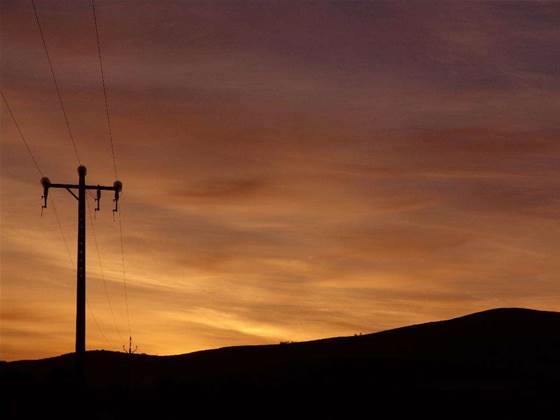Akamai's latest State of the Internet was a shot in the arm for supporters of the National Broadband Network, reporting that Australia was in the bottom half of nations in the Asia-Pacific for broadband speeds and slower than neighbour New Zealand.

The content-distribution service Akamai rated Australia, with an average connection speed of 2.6Mbps at 50th fastest broadband nation in the world; New Zealand with an average speed of 2.9Mbps was 42nd.
Russia was only slightly slower than Australia, recording an average speed of 2.1Mbps.
But Akamai, the company known for data centres that shunted internet traffic for such high-profile events as the World Cup and Mars Pathfinder missions, awarded Australia most-improved in the region with average broadband speeds lifting 19 percent in the quarter while most countries' performances were static or diminished.
South Korea was again the fastest on the planet with an average and maximum speeds of 12Mbps and 32.7Mbps, respectively.
It was followed by Hong Kong with an average speed of 9Mbps and Japan (7.8Mbps). The US was 16th globally with average speeds of 4.7Mbps.
State-by-state
Queensland earned the mantle of "Smart State", placing first for average Australian internet speeds at 2.7Mbps, shooting up the charts from its No.3 rank at the end of last year with 2.1Mbps.
The Northern Territory was the slowest region (1.1Mbps) not far ahead of Tasmania (1.5Mbps). Casuarina in the Top End was chosen among the next slew of sites to get early access to the National Broadband Network.
Australia's most populace states, NSW and Victoria, were broadband laggards, reporting speeds of just 2.2Mbps (No.6) and 2.5Mbps (No.4), respectively - well below the national average.
Perth, the world's most isolated capital of mining-boom state WA, lifted its rank from seventh to fifth with an average speed of 2.4Mbps up from 1.6Mbps in the earlier quarter.
Those with the need for speed should head to the nation's capital for their thrills because Canberrans were enjoying average speeds of nearly 2.7Mbps.
Attack traffic
The report cast some doubt on the oft-cited link between average internet speeds and centres for malicious attacks such as viruses and malware.
In order of originators of attack traffic, Russia (12 percent), the US (10 percent) and China (9.1 percent) were regarded as the three most malicious countries but only America ranked in the top third of countries surveyed; China was 124th for speed.
But Akamai found a loose connection between the number of internet protocol addresses, number identifiers unique to each computer, and the prevalence of attack traffic. The US was the No.1 country for IP addresses (129.3 million) while China was second (57.7 million) and Russia 12th (8.8 million).
Although Australia was right behind Russia on IP addresses (8.4 million) it was just 45th for attack traffic, Akamai found.


_(22).jpg&h=140&w=231&c=1&s=0)

_(20).jpg&h=140&w=231&c=1&s=0)
_(28).jpg&h=140&w=231&c=1&s=0)



_(26).jpg&w=100&c=1&s=0)

 iTnews Executive Retreat - Security Leaders Edition
iTnews Executive Retreat - Security Leaders Edition











_(1).jpg&h=140&w=231&c=1&s=0)




